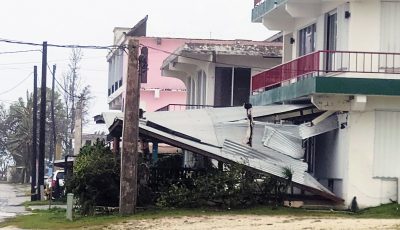Ruling dismays Guam senators
HAGÅTÑA, Guam— Guam Sen. Telena Cruz Nelson has expressed disappointment with the Supreme Court ruling last Thursday that U.S. citizens with disabilities who live in Guam and other U.S. territories cannot avail of the Supplemental Security Income benefits even though they may qualify.
“Approximately 25,000 citizens living on Guam could have been eligible to receive SSI payments for much needed healthcare and support. The decision to not grant these benefits to our people further separates Guam citizens from the United States mainland,” said Guam Sen. Telena Cruz Nelson The SSI program provides monthly payments to adults and children with a disability and elderly people aged 65 and older without disabilities that meet the financial qualifications.
“We are very disappointed that the Supreme Court came to this decision. We are part of the United States, and it is very disheartening to see that there is no equity for the people residing in Guam and the US territories who need SSI benefits,” said Nelson. (Saipan Tribune/PR)
‘A massive blow
for citizens’
A news release described Guam Sen. Telo Taitague as being “extremely distraught” because of the Supreme Court decision. “This Supreme Court ruling has a devastating impact to Guam and the territories. Such ruling imposes grave collateral damage for equal protections provided by the Constitution for Guam citizens,” Taitague said. “We are now more entrenched than ever before as a second-class society. …“The decision deprives citizens in U.S. territories of federal benefits that would otherwise be available to us if we lived in any of the 50 states. With 8 of the 9 justices ruling against providing disabled citizens of Guam and other territories a safety net particularly during this difficult and uncertain time, I am reminded of what those in positions of power in the federal government view to be Guam’s role and place in America.,”
Taitague, a former special assistant for External Affairs for the Governor, advocated that a coalition with other territories with non-voting delegates provides a louder voice and representation in Washington. (Saipan Tribune/PR)



























